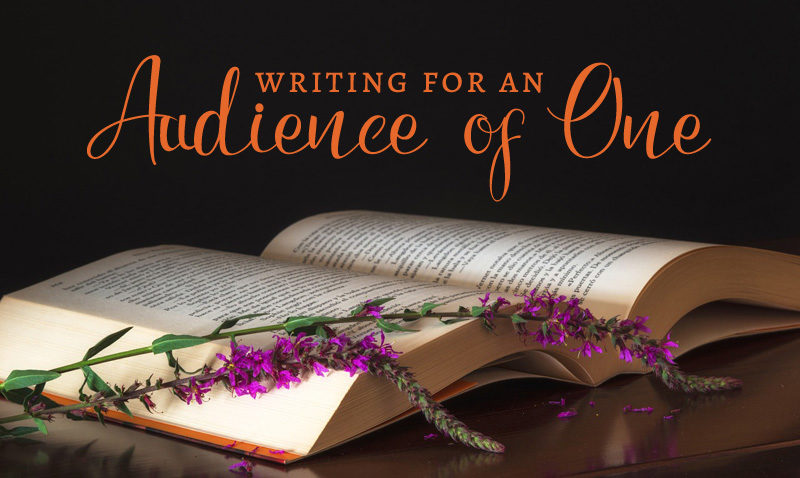Trying to become a full-time author is fraught with bad advice. Over time, you get better at absorbing the good advice and abandoning what doesn’t work for you. After all, no two people will ever use the same methods, no matter how similar their work may be. Despite this, there’s one consistent piece of one-size-fits-all advice given to authors who want to take the next step and push from hobby to career. That suggestion?
Write to market.
It’s pretty simple in concept. Pick a niche–preferably one that doesn’t have a whole lot of books available in it–and research thoroughly to learn the genre expectations. Study the clichés (er, I’m sorry, tropes) present in the most popular books, work out the successful formula, then write until your fingers bleed. The idea is that if it’s already out there and you’re fitting yourself perfectly to the mold of expectation, your books will be a hit.
For some people, supposedly, this is the magic bullet. It’ll launch your career like nothing else, bringing you enough royalties to write full-time and gathering masses of passionate fans. Like a lot of writing advice I come across, I tried it. It wrecked my physical and emotional health, and almost killed my love of writing.
See, while I’m sure it has worked for a few people–since it wouldn’t be touted as a cure-all if it hadn’t–it’s not good advice for most people who have a passion for writing for a few reasons.
For one, it requires you to write fast. This isn’t a problem for everyone. Some people are able to jump in and write 2,000 words a day or more from the get go, but most people have obligations that keep them from doing that. Work, school, family… any number of things can dig into that writing time, and if you need more than an hour or two to plan and write, you’d better not count on completing a book a month. Actually, that’s not even considered the optimal speed anymore for writing to market; most modern plans suggest publishing books written to suit market no further than 18 days apart. Ask yourself, and answer honestly: Can you write a good book in 18 days?
One solution offered in response to that problem is waiting until you have a bunch of books ready to release all at once. But there’s another problem that comes out of that situation. How do you know your books are going to sell? How do you know they’re going to be liked? How do you know you aren’t writing six books in a series and just throwing money away, buying professional covers and paying for editing on something that will never be read? Yeah, exactly.
You don’t.
A secondary problem is that books written to market are rarely picked up by traditional publishers, outside of romance novels, where the genre is already given to high amounts of churn. Your heroine and her steamy harem of werebear lumberjacks might be successful if you work fast and pop it on the indie market while that subgenre is hot, but if you need six months to write six books for the series, don’t count on the genre still being hot when your series is complete. And if it’s hot now, traditional publishers probably won’t want to touch it with a ten foot pole. After all, it’s not unusual for a book signed today to hit the market two years from now. If you don’t know it’s going to be successful in six months, what makes you think it’s going to be the bees knees in a few years?
Then there’s the biggest issue I encountered, the one that almost did me in.
Writing to market is a soul-sucking experience because at the end of the day, I’m not part of that market. I don’t typically like what’s hot and trendy, so trying to write it is soul-crushing and discouraging. I find a lot of popular books trite and cliché, sometimes even painful to read. Sure, fitting the mold might be a shortcut to success, but it’s also a path that runs contrary to the reason I started in the first place. And of all places, the harsh wake-up call came from an episode of My Little Pony. My friend Megan blogged about the same episode recently, if you want to read her thoughts, but for me, it pretty much boils down to one thing.
I write because of a piece of much older advice, which I think suits most people better: Write what you want to read.
I started writing because the books I liked had fallen out of popularity, and I found everything coming out of publishing houses when I was a teenager to be sorely lacking and highly uninspiring. And that’s the core of the conflict between writing to market and writing what I really love. Writing to market means finding a big audience, learning exactly what they want, and then giving it to them.
Writing what you love means writing to an audience of one.
Writing what I love is obviously better for me. Writing it at my own pace is better, too. The difficult part is that, contrary to what they show you in My Little Pony, the chances of what you want to read being what a large market wants to read are pretty slim. But it’s a richer experience, more fulfilling, and it results in what I think are better books.
Unfortunately, not everyone shares that opinion.
I wrote Her Midnight Cowboy because I wasn’t a fan of the super explicit paranormal romance. I found a few authors I enjoyed and wrote what (I felt) was the best thing I’d ever done. It was story-rich, just a little spicy instead of smutty, and completely lacked a snarky weapon-wielding heroine in leather pants, like what’s most popular in paranormal romance.
It totally bombed, and yet I still feel like it’s one of the best things I’ve written, because it was what I wanted to read. A sweet, fun and funny story with an immersive world and a gritty, violent paranormal adventure, rolled together under a charming country coat of paint.
But because it bombed, I was bombarded with the same message again: Write to market. Write to market, or you’ll fail again.
I guess that means it’s time to reevaluate success, because if writing to market means writing to someone else’s expectations, I’d rather not do it. I’m writing for me. An audience of one. And as far as I’m concerned, these stories are pretty fantastic.
Maybe my books won’t ever be successful because I’ll never give people who enjoy a mainstream market what they want out of a book. But maybe, just maybe, someone will eventually find my books and love them.
I mean… I could probably write for an audience of two.

